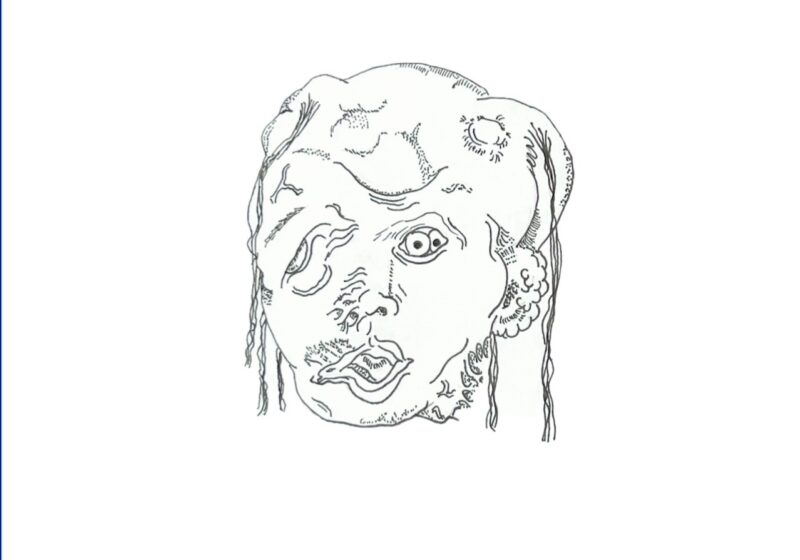The ROC Players’ production of “Cabaret,” was difficult, disturbing, and upsetting. And I wouldn’t have had it any other way.
Running in the May Room over the weekend, their production of the musical, directed by junior Emily Tworek, is a masterclass in the art of narrative dread.
“Cabaret” tells the story of a sleazy nightclub in early 1930s Berlin, showcasing songs and dances, all receptacles for sexuality.
It’s called the Kit Kat Klub, and the play opens as if we, the audience, are spending our night there.
The Emcee (played ferociously by first-year Jack Bell) ushered the audience in and out of different storylines. The main story follows Cliff Bradshaw (talented first-year Richard Nessler), an American writer who falls in love with Kit Kat Klub performer Sally Bowles (senior Rosie Flanagan). Meanwhile, Cliff’s aging landlady Fraulein Schneider (junior Aine Rhyn) and Jewish fruit seller Herr Schultz (senior Will Cunningham) entertain a romance. The early revelation that Schultz is Jewish, through his wishing of “mazel,” was the first indication of the play’s direction, and the first hint of dread. The Nazis were rising.
The first few numbers of the play, during which the players struggled a bit finding their footing, nevertheless felt carefree. Early‘30s Berlin is painted as a wonderland of desire and vice, a youthful fantasy world where all are welcome. The first number, which was echoed throughout the play, is appropriately titled “Willkommen,” German for “welcome.” The Kit Kat Klub may be sleazy, but all have a place there.
More importantly, it’s fun. Cabaret songs like “Don’t Tell Mama,” performed with a palpable energy, are much more fun to pay attention to than the quick mention of Cliff having “Mein Kampf” in his suitcase.
By juxtaposing joy with hate, and pleasure with dread, the first act of “Cabaret” offered a choice. I could either watch the play worrying about the looming terror of the Nazis, or I could forget all that and enjoy the show, hoping it never ended. Essentially, I was given the same choice as the characters of the play.
It speaks to the quality of the Players’ production that, even with the hindsight of history, I am ashamed to admit the choice I made.
I still feel a sting from the final scene of act one. There was no question as to where act two was going.
Everything that was so wonderful about the first act became stained with the horror of the second. The sweet story of Schultz and Schneider becomes infested with Nazism and anti semitism. The fear and dread mounted, sexual numbers turned sinister, and kick lines became goose-steps. The flamboyance and energy of the Emcee’s performances started to feel inappropriate and offensive in the context of the play. The attitude, embodied by the Emcee, the dancers, and the pit orchestra, that once felt so gleeful now felt upsettingly wrong.
The plays message, that ignorance is ineffective and wrong, never felt heavy-handed, because I always believed the characters. In particular Flanagan’s performance as Sally, a woman whose love for a city is so addictively strong that she is willing to lose everything to keep it. Flanagan’s songs felt more like monologues, and her late number “Cabaret,” was a wrenchingly real portrayal of denial. Cunningham was heartbreaking as Schultz, and Ryhn painfully raw as Schneider, whose love is overpowered by her instinct for survival, rendered tragically and engrossingly in “What Would You Do?”
The production team deserves a nod here, because their technical skill is essential to telling the story with the respect it deserves. The pit orchestra led by sophomore Michael Wizorek, the sets by sophomore Delilah Przybyla, costumes by senior Keneon Williams and first-year Madalayne Martin-Olenski, and lighting by Wizorek and first-year Kaelyn MacFarlane-Connelly worked in tandem to create a believable world for the characters to inhabit.
Ultimately, “Cabaret” is urgently relevant, a cautionary tale about the war between empathy and ignorance. It’s not an easy pill to swallow. Empathy hurts and so does “Cabaret.” And it should.




